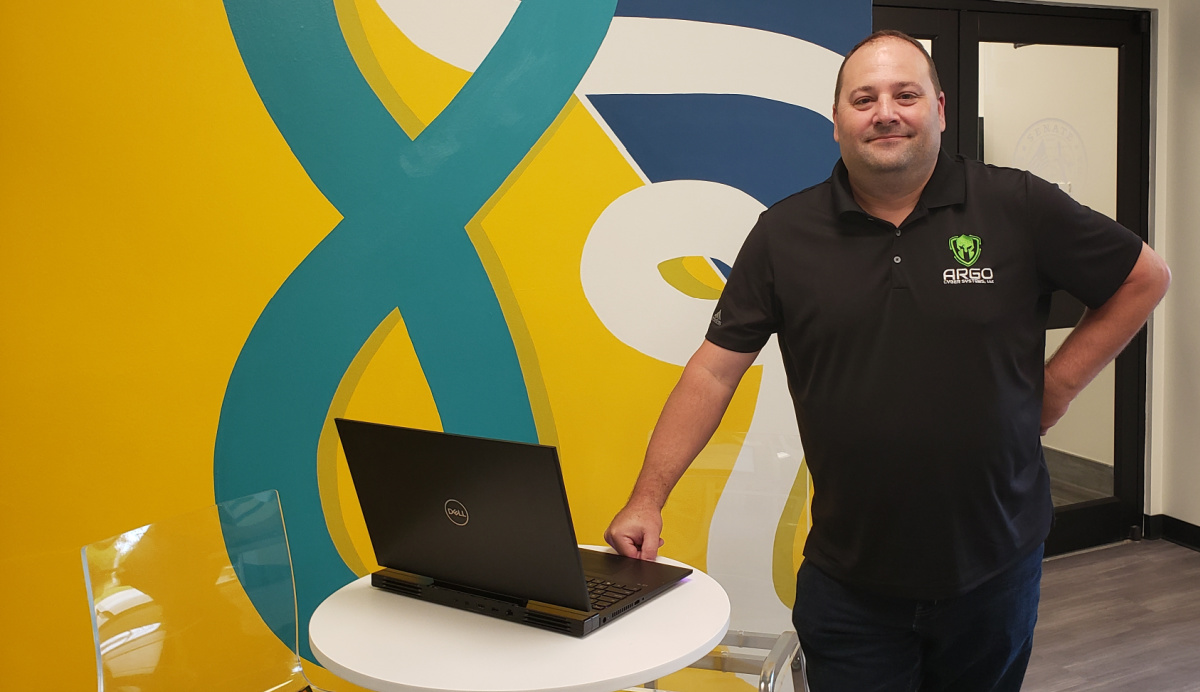
23 Aug Cyber’s New Capital City, Pensacola Florida
How Pensacola is quietly emerging as one of America’s most important cybersecurity hubs
Long known as the “Cradle of Naval Aviation,” Pensacola has a proud military heritage and maintains a strong affiliation with the myriad agencies responsible for national defense. Now, technology makes bits and bytes every bit as important as bombs and bullets to America’s security. Our enemies needn’t send armies when a snippet of malicious code can cause as much long-term damage.
Once again, the city and region are playing a critical role in protecting the country’s critical infrastructure and its economy – only now, it’s against the growing threat of cyberattack. And just as the prevalence of military bases has shaped the area’s economy for decades, the growing field of cybersecurity promises to spin off new jobs, companies, and even industries for many years to come.
Welcome to the CyberCoast
In an effort guided by private-sector companies, the FloridaWest Economic Development Alliance is working to capitalize on this trend and bring more jobs, companies, and federal agency workers to the area. Under the banner of the “CyberCoast,” FloridaWest is actively recruiting cyber pros (and the companies they work for) to the region.
“Naval aviation opened a new battlespace in the sky, and information technology has done the same thing in cyberspace,” said FloridaWest CEO Scott Luth. “Cybersecurity is a great fit here for a number of reasons, but foremost are the strong concentration of information security assets and the large, growing pool of talented workers in the region.”
At the heart of the CyberCoast campaign is a new website, which promotes the region to remote workers, those seeking jobs with existing businesses, and companies launching, relocating or expanding. Low-cost social media campaigns have driven thousands of site visits from targeted professionals and entrepreneurs nationwide.
Boots on the Ground
Government presence is one strong draw to the area. The Department of Homeland Security (DHS), National Security Agency (NSA), and the Navy’s Center for Information Warfare Training all have major operations in Pensacola. These agencies in turn have a number of private sector contractors to support their missions.
Leidos, a Fortune 500® technology, engineering and science solutions and services leader, is among the companies becoming part of the local community. The company has supported the Department of Homeland Security and its components through work with the Customs and Border Patrol; the Transportation Security Administration; and the Federal Emergency Management Agency.
“Leidos is proud to be one of the largest government cybersecurity services providers, operating four of the five largest Federal SOCs,” Jason McCarthy, Vice President in Leidos’ Homeland Security Solutions business recently said. “We’re excited to be part of the CyberCoast and work with local universities to help prepare the future workforce for cyber-related careers. Being an active part of the local cyber community is one of the ways we’re supporting customers across the government who are facing unprecedented cyber challenges.”
Other companies, like NOF Technologies, have emerged to help private companies, nonprofits, and educational institutions protect themselves against cyberthreats. Company CEO Bill Dunn is part of the Cybersecurity/Information Technology Committee (CITCOM) that helped conceive the CyberCoast campaign. He believes the region has just scratched the surface of its long-term potential.
With A New Brand In Place, NOF Advocates For The CyberCoast
“The demand for services is exploding, our schools and military are turning out the workforce, and we have an established track record,” Dunn said. “When you look at that in conjunction with our wonderful quality of life and the fact that so many people can choose where they work, I fully expect the number of cyber-related jobs to more than double over the next five years.”
Cyber as a Second Language
The schools Dunn mentions include the University of West Florida (UWF) and its Center for Cybersecurity, a nationally renowned center of excellence headed by Dr. Eman El-Sheikh. In addition to its world-class research and testing, the Center also helps other educational institutions become centers of excellence.
Argo Cybersystems is a homegrown company with roots in the Pensacola State College (PSC) cybersecurity program. Company CEO James Rogers was one of its first graduates and for him the cyber workforce was a major reason for starting his company in the area.
“What helped the decision to launch a new tech company here was the incredible untapped talent pool, the affordable living costs, the awesome education programs public and private including George Stone, PSC and UWF” Rogers said. “I am personally so proud to be a part of the adventures in the CyberCoast. The decision was too easy.”
PSC also offers a four-year cybersecurity degree program, aimed at preparing students to go immediately from the classrooms into high-paying jobs in their fields. As Roger noted, area technical schools and even some local high schools are introducing cybersecurity classes as part of their curricula now.
Defense in Depth
Luth said that cybersecurity professionals often stress that there is no single line of defense that can protect businesses or individuals from attackers.
“The best security is built in layers, with each supporting the others,” he said. “The same is true of economic development. Cybersecurity is another critical layer supporting our continued job and wage growth here. And the CyberCoast campaign is helping us build that layer.”
Want to know more? Reach out!




Sorry, the comment form is closed at this time.